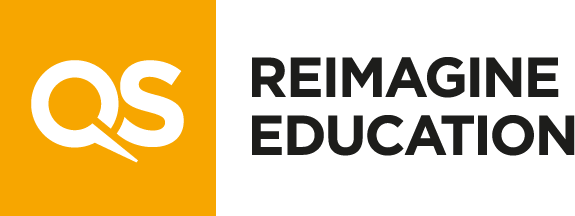APPLICANT SUCCESS PARTNER
REIMAGINE NEWSLETTER: ISSUE 37
Globalization has been one of the most impactful phenomena of the last century. It has ensured that the fruits of invention in one country are relayed across countries as well as culturally and ideologically dissipated across societies. This also holds significantly true in the world of education. Globalization has provided significant improvements to education standards across the globe and several best practices have been observed and transferred from one country to another with greater ease, particularly from countries like Finland, Singapore, Hong Kong and South Korea have been easier to observe and adopt.
Finland’s education system particularly stands out, as it focuses extensively on the evolvement and continuous training of teachers, while also focusing on student happiness. As pointed out by Pasi Sahlberg in his book, “Finnish Lessons – What can the world learn from educational change in Finland”, about the difference in the Finnish education system, by pointing out that they place great emphasis on:
- Trust in Teachers and Schools
- Reduced competition, and
- Lifelong Learning
The education system came into news when they outscored other countries in the PISA rankings, but the foundation of it was laid more than 20 years ago, when they started to bring in structural changes in their outlook to the teaching process and its place in society, which in a lot of ways is similar to the story of the Chinese Bamboo, which takes careful nurturing for 5 years before even sprouting, and then grows 90 feet tall within 6 weeks of sprouting. The research across the year has also led to increased focus on student happiness and well-being.

Raghavv Sharrma
Founder & CEO
UpLift
We at Uplift, have been inspired by the Finnish Education system, as it focuses on bringing out the best in each child and by teaching them to concentrate on their core strengths and being aware of their weaknesses, which in turn leads to happiness.
As Albert Einstein pointed out that “Everyone is a genius, but if you judge a fish by its ability to climb a tree, it will live its whole life, believing that it is stupid.” Unfortunately, even though all education systems across the world have recognized and appreciated this thought, a lot of them still use standardized tests as the singular way to judge their students. It is also true that unlike countries as Finland and Singapore, not enough countries have been able to create a strong backbone of trained teachers, who would be able to create an environment of individual focus on students that will eventually lead to an impact on students’ happiness, and even in the countries that have already started the process, we know that it will take a long time to show any results. Luckily, with the advent of technology and the growing focus on EdTech we don’t have to worry about the whole ecosystem and the teacher training backbone or culture to be ready, before we can focus on individual attention to each student in a Class or a School. The key is to realize that while EdTech takes some of the pressure off from us, there can’t be a let up in terms of getting the ecosystem for improving teachers’ quality and creating a culture of training teachers on a regular basis and use other modern tools while you are trying to achieve that.
Technologies like Artificial Intelligence, Machine Learning, Big Data, a wide variety of content creating tools to enhance understanding of concepts like Augmented Reality, Virtual Reality etc., have given us enough tools to enable us to work with concepts like Gamification, Personalized Learning, Project based Learning or Phenomena based Learning and Global Exposure for students with ease. There are indeed many tools that have already been created and will continue to be created to enable this but we need to realize that there is no silver bullet in education, and no one tool can take care of the needs of all types of learners and cater to their individual learning paths. We need to ensure that we combine the right type of tools and programs based on the learning needs of the individual and carefully analyze the effectiveness of each tool on a child’s understanding levels. As pointed out in this TEDx Talk video, a great teacher needs to listen. Technology can help us listen. The problem stems from the fact that there are too many great tools available in the world that cater to similar problems yet no one tries to look at them holistically and analyze as to which level each tool is effective and what can be done to take the learning from various tools to relate to students, to understand their weaknesses and strengths, to make them realize that when it comes to their learning we are with them, and that we are learning with them rather than being the “experts”.
To be able to accomplish this, we need to start creating the right combination of tools based on the learning abilities of each individual and enable the teachers to use the information provided by various tools to guide the students’ learning paths and give them ownership of their learning outcomes, while continuously evaluating the efficacy of those tools in achieving the desired goals from an individual’s context. An insight on the importance of context for the development of a child can be seen on this TEDx talk by Tom Weisner. This will enable us to gain the confidence of the child, inspire them to do better and learn from their mistakes.
We encourage and enable every StartUp in the EdTech field to look beyond their perceived markets and to start planning for international expansion, particularly the StartUps from countries that have strong teaching cultures, and to explore countries like China, India, Indonesia, Malaysia, the African Region, for expansion as they are probably not going to have the kind of teaching infrastructure that is prevalent in advanced teaching cultures, and where the EdTech tools are going to enable student development, while the policy apparatus enables upgradation of the teaching culture and infrastructure in the country. We encourage StartUps to explore international expansion in these high-volume areas mentioned above, as it gives them the benefits of:
- Diversifying market risks
- Ensure greater target customers
- Avoid plagiarizing of Product Idea by a local competitor
In this regard, some of our implementations have shown great results, where students have adapted well, and the teachers have been able to leverage the unique insights to enable their students to learn better.
As the United Nations points out “Quality education is a force multiplier which enables self-reliance, boosts economic growth by enhancing skills, and improves people’s lives by opening up opportunities for better livelihoods.” We should leverage the fruits of globalization and utilize the educational tools from every country to ensure that no child is left behind in getting the learning s/he deserves and the country in general receives the right impetus to its growth. The key is to create the right context around each tool.
We at UpLift have dedicated ourselves to identifying tools, categorizing them as per their capability to fit in a student’s needs, depending on the student’s academic, regional and situational context.


